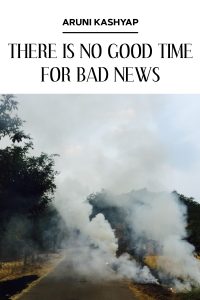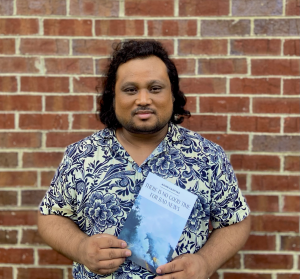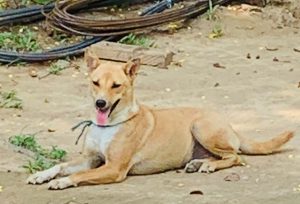Drunk On Ink Q and A with Aruni Kashyap and ‘There Is No Good Time For Bad News’, poetry collection
Drunk on Ink is a blast interview series by Soniah Kamal author of the novel Unmarriageable, a parallel retelling of Jane Austen’s Pride and Prejudice and set in contemporary Pakistan


Aruni Kashyap writes fiction, poetry, essays, tweets, Facebook posts, screeds, in Assamese and English. He is an Assistant Professor of Creative Writing and English at the University of Georgia and lives in Athens, Georgia.
About There Is No Good Time For Bad News
There Is No Good Time For Bad News is a collection of poems that depict, through oral histories, narratives of survivors, on what it means to live under the duress of an authoritarian state. Poems that attempt to show the possibilities of storytelling when it intersects with the discourse of human rights and justice. Poems that draw heavily from oral history, folktales to critique the modern state’s abuses of power.
SONIAH KAMAL: First author/book you read/fell in love with? Why?
ARUNI KASHYAP: Jun Beli, Tora Aru Onyanyo by Dipti Dutta Das: a feminist auto fictional work set in a small town called Golaghat in the state of Assam in India. It is a town I love and know very well. Also, it depicted a world before my state Assam burst into an insurgency against Indian rule, seeking independence. My childhood was all about gun battles and bomb blasts because I grew up during an armed insurgency. This novel portrayed my homeland before the insurgency, providing a clear picture of what it meant to live peacefully in the sixties and seventies. It is also the first novel I ever read in my life.
To unwind: chai, coffee, water, wine?
Always, chai. With milk, cardamom, and a hint of ginger.
A novel, short story, poem, essay, anything you believe should be mandatory reading? Why?
The Book of Night Women by Marlon James. First, it is a riveting work of fiction. It is so damn well written, and I wish I could write like that. Reading the book makes me wonder what the hell I am doing because I can never write at that superior level. But the book is also radical in terms of language. Can we write in an English that defies conventions? Can we write in an English that is derived from the spoken? It questions what kind of language the modern Anglophone publishing industry privileges repeatedly and I find that especially empowering and inspiring. It is also radical for many other reasons, and if I elaborate, it will become a 5000 words essay. So, I will stop. But everyone should read it!
Any classic you wished you’d pushed through in your teens?
I wish I had read The Old Man and the Sea more diligently. I read it in my teens but didn’t enjoy it. And I didn’t read it for many years but reading it in my twenties was a wonderful experience.
Favorite quote from your book
Oh, dear!
“Definitions have always belonged to the definers.”
Favorite book to film? And why?
The Namesake. Mira Nair managed to transform the novel and make it much more invigorating. Amazing music. Incredible acting by Tabu and Irfan Khan. I have watched the movie many times, but I have read the novel only a couple of times. It is one of those rare instances when you like the movie more than the book.
Favorite Indie Book Store/s?
I love Avid Book Store in Athens, Georgia. They are close to where I live, have a great staff, and hosted one of my readings! How can I not love them?
The one think you wish you’d known about the writing life?
Many things! I wish I had a mentor. I never had one to tell me, “Aruni, you should do this.” But above all, I wish I had known that success means what it means to me now in the post-2020 world. I think that I am successful as an author, and I feel very fortunate about that. I know I worked and but also lucked out. I do want the big book deal, and I do want to be a bestselling author, and of course, I want to speak to massive crowds in large auditoriums, but I used to think that is the only kind of success, but after 2020, I have realized that success is all about the ability to practice my art with the least hindrance. I am immensely grateful I can do that.
Does writing/publishing/marketing get any easier with each story/novel published?
I think the writing gets easier as we write more: it is like Hindustani or Carnatic classical music; the more you write, the easier it becomes. But publishing and marketing are things that are not in our control. If I had an influential literary family, I would open my own press and publish myself. But I have chosen this, so I complain a lot to my friends and still submit and still get upset occasionally with rejections. I don’t get affected by negative reviews because I am an academic and know literary history well and have seen how artistically audacious books are reevaluated after a few years. I hope to continue writing such books.
Dog, Cat, Or?
I have had dogs and cats.

Boruani 🙂
Ideal vacation?
Anywhere with loved ones, but with a thriller and lots of good food.
Favorite book cover?
After it was adapted as a movie, the new paperback edition of Beloved was published I think – the woman with that black gown, the black hat. It is a stunning cover, but I think you can appreciate that cover more if you had already read the novel and have not watched the movie.
Favorite song?
“Bimurto Mur Nixati” by Bhupen Hazarika is a song about lovemaking, but it is so suggestive and euphemistic that it can be a song about anything else. I know it by heart.
Favorite painting/ work of art?
Las Meninas, by Diego Velázquez
Any Lit Festival anecdote you want a share? A great meeting with a fan? An epiphany?
Writing in Assamese regularly has given me a huge set of readers who have also become friends and part of my life. Some of them have been with me through thick and thin. Sometimes we write serialized novels in Assamese, and my first Assamese novel was serialized in a magazine called Satsori. Once, a reader fell in love with Rajeev, who is also the protagonist of the novel. He comes to Minnesota, studies English, falls in love, and often wonders about his home in Assam. He is critical of US foreign policy (as one should be!), racism (of course!), etc., and airs those views usually in between conversations. This reader fell in love with Rajeev and would share her responses with me often but often thought I am Rajeev: “When you do this in the novel in that episode, I thought.” I would correct her, “No, that’s not me, that’s the character.” But one day, she stopped calling and left a comment on my social media that she doesn’t like Rajeev anymore because he “sleeps around”. “This novel reveals what kind of a character-less person you are,” she said. I have laughed about it for all these years.
Do you have a favorite film, or two, or three?
My god, the list is so long, but I like Hazaroan Khahishein Aisi. I also love watching commercial Indian movies that don’t make much sense. My favorite movie is Mr. India: about a man who finds a device that makes him invisible when he wears it. He uses this newfound superpower to fight corruption in India.
What is your favorite Austen novel and film adaptation? Why?
I am not an Austen fan, but I enjoyed reading Pride and Prejudice and Emma. I read them because they were was in my English literature course. It was compulsory reading. I have not watched any of the adaptations.
Recommend a Small Press and/or Literary Journal?
A small press I admire is Hub City Press in South Carolina. I admire many small presses.
Last impulse book buy and why?
An hour ago! My house is full of books that are waiting to be read. When will I have the time to read them all!
More Drunk on Ink Interviews:
Gayatri Sethi, Unbelonging, a memoir
Jenny Bhatt, Each of Us Killers, short story collection
Nancy Johnson, The Kindest Lie, a novel
Yousra Imran, Hijab and Red Lipstick, a novel
Sejal Shah, This Is One Way To Dance, memoir
Madi Sinha: The White Coat Diaries, a novel
Chika Unigwe, Better Late Than Never, short story collection
Anju Gattani: Duty and Desire, a novel
Christopher Swann: Never Turn Back, a novel
Zetta Elliott: A Place Inside of Me, middle grade fiction
Veena Rao: Purple Lotus, a novel
Tara Coyt: Real Talk About LGBTQIAP, non fiction
Maureen Joyce Connelly: Little Lovely Things, a novel
Molly Greeley: The Heiress, historical fiction novel
Donna Miscolta: Living Color, short stories
Mike Chen: Here and Now and Then, a novel
Ruth Franklin: Shirley Jackson A Rather Haunted Life, biography
Colleen Oakley: Before I Go, a novel
Emily Midorikawa: A Secret Sisterhood: The literary friendships of Jane Austen, Charlotte Bronte, George Eliot, and Virginia Woolf, biography
Shabnam Samuel: A Fractured Life, memoir
Elise Hooper: The Other Alcott, a novel
Anne Boyd Rioux: Meg, Jo, Beth, Amy: The Story of Little Women and Why It Still Matters, non fiction
Devoney Looser: The Making of Jane Austen, non fiction
Kristen Miller Zohn: The Currency of Taste- Gibbons Georgian Silver, coffee table book
Vanessa Hua, A River of Stars, novel
Chaitli Sen, The Pathless Sky, novel
Sonya Huber, Pain Woman Take Your Keys, memoir
Kathy Wilson Florence, Three of Cups, a novel
Sara Luce Look, Charis Books and More, independent book store
S J Sindu, Marriage of a Thousand Lies, a novel
Rosalie Morales Kearns, Kingdom of Men, a novel
Saadia Faruqi, Meet Yasmin, children’s literature
Rene Denfeld: The Child Finder, a novel
Jamie Brenner, The Husband Hour, a novel
Sara Marchant, The Driveway has Two Sides, memoir
Kirsten Imani Kasai, The House of Erzulie, a novel
Thrity Umrigar, The Secrets Between Us, novel
John Kessel, Pride and Prometheus, novel
Lisa Romeo, Starting with Goodbye: A Daughter’s Memoir of Love After Loss
Rachel May, An American Quilt: Unfolding a Story of Family and Slavery
Rebecca Entel, Fingerprints of Previous Owners, novel
Jamie Sumner, Unbound: Finding from Unrealistic Expectations of Motherhood
Falguni Kothari, My Last Love Story, novel
Tanaz Bathena, A Girl Like That, YA novel




Very nice interview